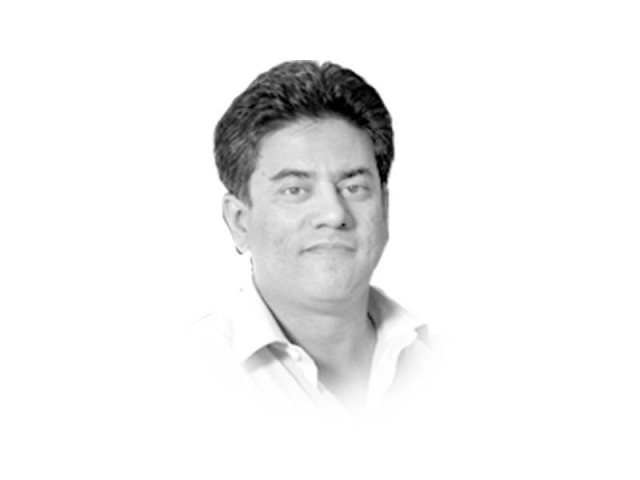The roadblocks in our mind
We think we are safe because we have armed people around. The opposite is actually true.

This is a common problem. The obsession with security continues to reach new heights. We have set up checkpoints, blocked off roads, closed down buildings and encroached on public space (our space) only to try and achieve what cannot be done — protect certain areas from the threat of terrorism. But in the recent case of Kamra, the ‘aviation city’ — and repeatedly demonstrated on various occasions in the past couple of years — this is all an illusion. Terrorists enter at will, sometimes with the help of people within. But we can’t talk about that now. Journalist Saleem Shahzad lost his life trying to make that point.
Our security check posts, like the numerous ones that dot Lahore and Islamabad, serve no purpose other than to cause traffic jams and waste time. In Lahore and Peshawar, a barely literate NCO (non-commissioned officer) decides for me — based almost entirely on my appearance or his perception of it — which route I can take to enter the city.
The police in Karachi, as usual, are more enterprising. The local SHO ‘rents’ out police mobiles to his juniors, who then proceed to go out and set up a naka in the name of law and order. The sipahis spend hours stopping and extracting money from the poor and the powerless. Once you pay the bribe, you can all but carry a cannon for all they care. And in the process, a mobile police unit makes over Rs20,000 or more daily. If only they could spend some of that on their vehicles and their uniforms.
The claim that our police force or law enforcers don’t have enough funds is a lie. Not only do the officers ride in vehicles that cost over Rs5 million, but many have more guards than there are at police stations. There is over-employment based on false threat of terror. And there is a plethora of forces we are maintaining. In Sindh, for example, we spend billions for the upkeep of the Rangers — a border security force that now patrols our urban centres.
We think we are safe because we have armed people around. The opposite is actually true. But many have seen the obsession with security as an opportunity to make money and give jobs. In Sindh, the incidence of crime increases with the money the government pumps into law and order. The more the policemen, the more the crime. Today, one can actually argue that if we scrap the police force, things might actually get better.
The roadblocks remain in our mind. In Colombo, even in the worst of fighting, never were hotel visitors subject to the elaborate TSA standard searches we see at our local hotels. These security check posts — many created on public footpaths and roads — only give a false sense of security. We are as safe as we were without them. Our president has apportioned a main Karachi boulevard on which millions of Pakistani and American taxpayers’ money has been spent. Possibly the bigger the fish, the larger the encroachment.
Billions continue to pour into half-baked security initiatives. Take, for example, the now-abandoned Safe City project in Islamabad. The purpose of this project was to create a city within a city. These attempts at erecting safe areas are a bureaucrat’s dream and a common man’s nightmare. In the process, the real issue of rising crime and terrorism continue to remain unaddressed.
The inability of the government to deal with lawlessness means that the writ of the state and the rule of law suffer. When you see people not stopping their cars when a policeman beckons them to do so, what you are seeing is the beginning of something bigger. One can only hope the issue is addressed in time.
Published in The Express Tribune, September 10th, 2012.















COMMENTS
Comments are moderated and generally will be posted if they are on-topic and not abusive.
For more information, please see our Comments FAQ